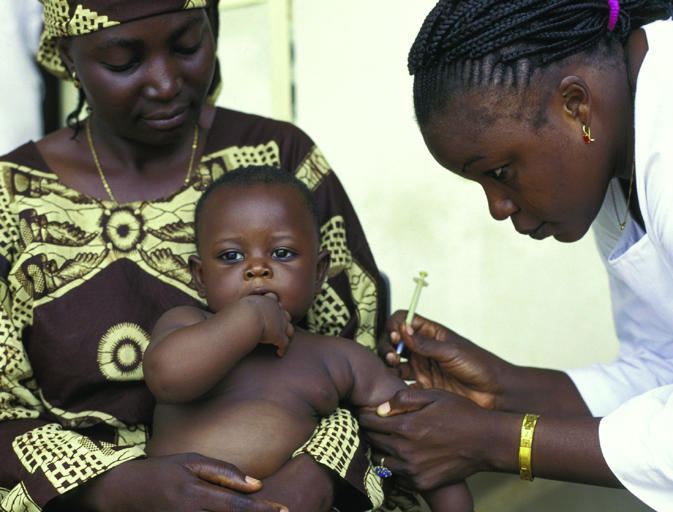Editor—Although the obstacles to global health posed by inadequate health research capacity, particularly in developing countries, are well documented,1-4 bureaucratic barriers preventing overseas based health academics in developed countries willing to return are hardly addressed.
Figure 1.

Credit: GIACOMO PIROZZI/PANOS
Firstly, recognition of academic qualifications is an issue. Current practices of most medical councils in developing countries apparently indicate that recognition of academic qualifications operates primarily on the principle of reciprocity. Consequently, some “innocent” overseas medical academic graduates from reputable universities invariably get caught in the ideological crossfire relating to reciprocal (non-) recognition of certificates.
Advocates of a revival of academic medicine in the developing world may mediate to neutralise this obstacle by providing an international grading system that ranks medical research centres and medical and public health schools at universities by an aggregate of measures, analogous to the US stockmarket “Standard and Poor's 500” list. Such a measure would provide a more objective and readily accessible international comparison of medical and health qualifications.
Secondly, local health academics seem unwilling to accommodate their overseas counterparts in developing country universities and health research centres. Although the official reason for rejecting applications from suitable overseas health academics is non-availability of funds, local academics may be circumspect about employing overseas applicants who might eventually supplant them professionally and administratively in the departments they currently head.
Helping universities and international health agencies to create vacancies for academic medicine, funding their advertisements in international journals, and facilitating a more transparent system of processing applications for such advertised positions should minimise this obstacle.
Competing interests: NA is an Australian based academic public health physician who has tried unsuccessfully to secure academic employment in developing countries since 2001.
References
- 1.Bhutta Z. Practising medicine in an unjust world. BMJ 2003;327: 1000-1. (1 November.) [DOI] [PMC free article] [PubMed] [Google Scholar]
- 2.Nchinda TC. Research capacity strengthening in the South. Soc Sci Med 2002;54: 1699-711. [DOI] [PubMed] [Google Scholar]
- 3.Flanagin A, Winker MA. Global health—targeting problems and achieving solutions. JAMA 2003;290: 1382-4. [DOI] [PubMed] [Google Scholar]
- 4.Smith R, Clark J. BMJ Publishing Group to launch an international campaign to promote academic medicine. BMJ 2003;327: 1001-2. (1 November.) [DOI] [PMC free article] [PubMed] [Google Scholar]


